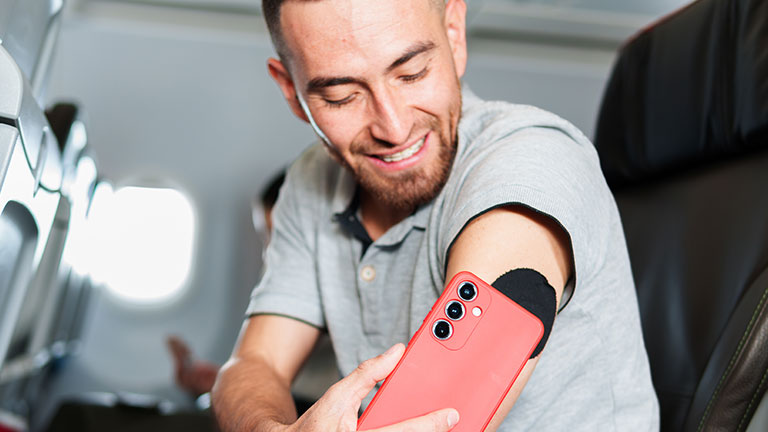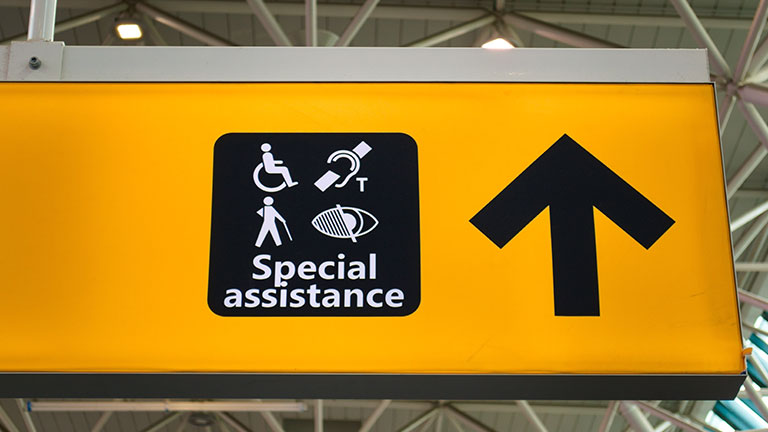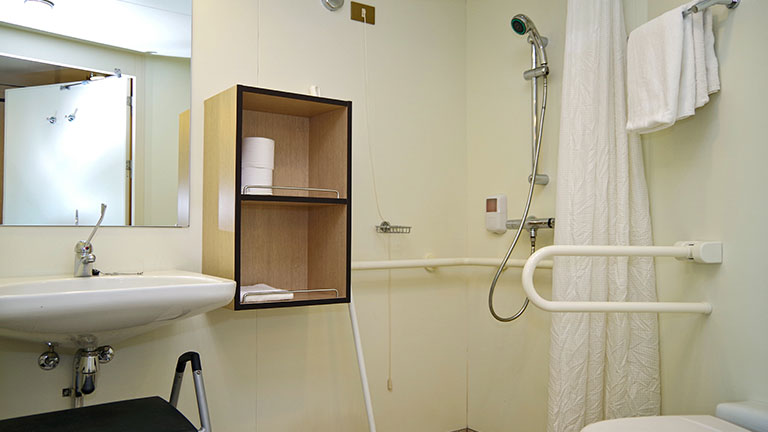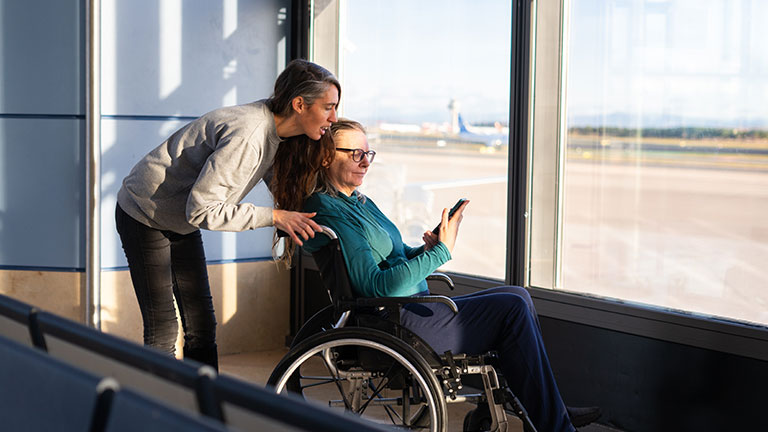Traveling can be complicated, and traveling with a disability—well, that can be even more challenging.
I suffer from a visual impairment that restricts many of my activities. With this disability, I am accountable for judging not only the difficulty of an activity but also for realistically assessing my ability to participate in what used to be my favorite activities, like cycling and hiking.

Traveling with a disability means that it’s essential to think hard about daily activities and necessities. And when it comes to traveling, you must ask yourself a whole special set of questions. For example, is additional packing time needed? Do extra changes of clothing fit into the equation? How long does it take to load and unload special equipment?
Although travelers with disabilities and their companions have some things in common, they also have many unique needs that require individual attention. What works for one person who is differently abled doesn’t work for another. It’s not a monolithic demographic, after all.
Here are some practical tips that I’ve learned from personal experience for anyone traveling with a disability.

Evaluate the unique needs of all travelers
Trip planning should begin with a discussion about the unique needs of your travel party. For example, do particular noises bother them? How often do they need to eat? Do they require assistance with activities of daily living (ADLs) or medications?
Also consider how you are able to assist with a person who needs extra care. Do you have the strength to push somebody in a chair? How about help with toileting and hygiene? Can you transport the person? Are you traveling with people who understand what it’s like to travel with somebody with special needs?
If you are traveling with mobility equipment, from motorized wheelchairs to walkers, check that everything is operational and that you have chargers and adapters on standby. Know how long it takes to pack, set up, and get organized for the day by conducting test runs in your own home. And ensure that anything electronic is fully charged with the option to recharge overnight.

Book accommodations with care
Another major consideration is the type of accommodations you’ll need. Depending on the ease of mobility (or lack thereof) of your travel party, the options for a comfortable and safe environment may be limited. Be sure to make arrangements well in advance.
Case in point: On a recent and spontaneous visit to Lake Placid, New York, I searched for an ideal short-term rental. What typically works best for us is a house with two bedrooms, two baths, a living area, and a mini kitchen. Even though we were traveling off season, ideal lodging proved difficult to find due to a local hockey tournament.

Stay flexible and positive
Despite missteps, I generally remain realistic and prepared for anything. With our son, who has a developmental disability, we must prepare for unpredictability.
Expect the best outcome in your travels, but don’t be surprised or disappointed if things don’t go as planned. Be alert to any discomfort your companion might be experiencing. Don’t push. Take time for breaks. Take note of what elicits smiles. Consider repeating that event or activity again during your trip.
If your planned itinerary doesn’t work out as anticipated, take a step back. Consider how your companion has dealt with things in the past. Fatigue and travel often go hand in hand. Don’t expect perfection; simply hope for the best and enjoy the time spent with your traveling companions.
Sometimes reality takes precedence, and Plan B, D, or Z happens. Just remember the purpose of your trip, and make the most of it. Patience is a virtue, and flexibility is an asset.

